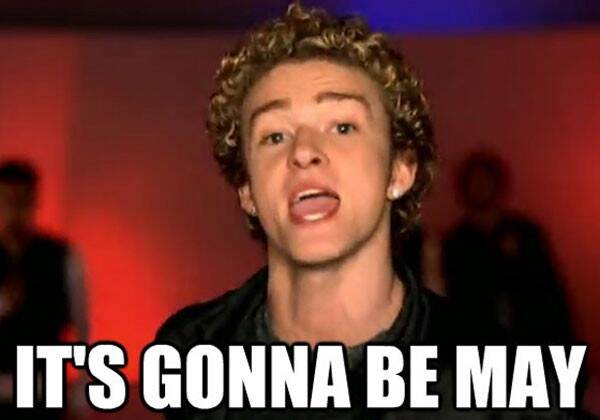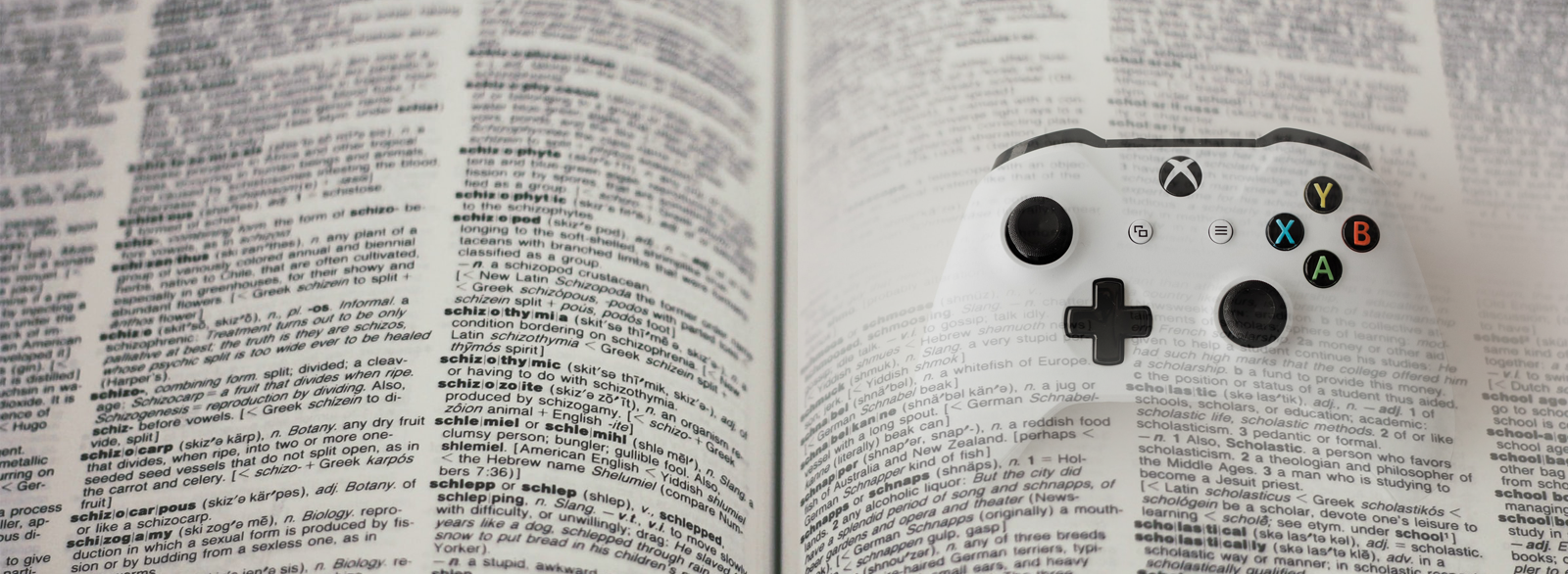It’s been a long while since I last updated my blog, but here I am! I remember last time it was still in winter, but now it’s already halfway through summer. The pandemic seems to be making time fly by real fast. That said, I definitely haven’t forgotten my blog. Actually I’ve piled up quite a few half-done drafts, so stay tuned for more updates here in the upcoming period. But today I want to write on something else.
If you have been following this blog, you would probably know that many of my posts are inspired by quotidian life events, such as a chat with a friend, a random thing I see on the street, etc. I enjoy bumping into interesting stuff and making unexpected discoveries, and this post is no exception.
So, I was randomly shuffling through my Music playlist on the subway last night and heard the Glee cast sing “Tonight” from West Side Story (I’m excited about the upcoming remake by the way). The song itself couldn’t be more familiar, but maybe because I was being bored by the long journey, I paid a lot of attention to how the singers enunciated the word tonight—with a /tu/ instead of a /tə/. Of course, this is a common way of pronunciation in singing, one that I had already noticed when learning “The More We Get Together” in elementary school. But it subsequently invoked my memory of a series of similar life experiences—all about unusual pronunciations in pop songs—which I thought would be good material for a blogpost. ✏️
The first case that came to my mind was the “singing pronunciation” of champion, especially that in Queen’s “We Are The Champions.” Instead of /ˈtʃæmpiən/, the singers pronounced it as something like /ˈtʃæmpiʌŋ/ or /ˈtʃæmpiə̃/. I haven’t found any discussion about this on the English Internet but have found a thread on the Chinese website Zhihu, where a netizen asked “Why is champions pronounced like Northern Shaanxi dialect in ‘We Are The Champions’?” (Northern Shaanxi dialect is a Chinese dialect featuring many nasalized vowels). The top answer explained that singing /ən/ as /ə̃/ was a special compensation for the low sonority of the final /n/, which would make the song sound weak.
I’m not sure how plausible this theory is, but the phenomenon does seem more widespread than just an individual singer or song. The same Zhihu thread mentions Fool’s Garden’s “Lemon Tree” as a further example, where the words happen and isolation are pronounced like /ˈhæpə̃/ and /ˌaɪsəˈleɪʃə̃/.
What’s more, I’ve definitely also heard this unusual pronunciation in performances by nonnative English speakers, as in this cover of James Blunt’s “Champions” by a popular Chinese singer Charlie Chou, who pronounced -pion in an even more exaggerated way than the original singer did. Puzzlingly, though, when I asked a native speaker friend about this, they told me they didn’t find Queen’s pronunciation of champion unusual. 🤔
Following champion, the second case of unusual singing pronunciation that came to my mind on the subway was the word baby. In speech the word is normally pronounced as /ˈbeɪbi/, but in pop songs I’ve heard a range of variants from the somewhat neutral /ˈbeɪbeː/, as in Justin Bieber’s “Baby,” to the rather exaggerated /ˈbeɪbeɪ/, as in Mariah Carey’s “Always Be My Baby.” Sometimes several different pronunciations even co-occur in the same song, as in Britney Spears’s “Baby One More Time,” where I hear /ˈbeɪbi/, /ˈbeɪbeː/, /ˈbeɪbeɪ/, and maybe even /ˈbeɪbṃ/. 💁♂️
Again, this unusual pronunciation isn’t limited to native speaker singers but is also common among nonnative speakers, as in A-Mei’s “Sister” and Coco Lee’s “Baby I’m Sorry.” Both numbers are Mandopop classics, and the pronunciation of baby is also unadulteratedly /ˈbeɪbeɪ/ in both!
I’m not the only one who has wondered what’s going on with baby. For instance, this post characterizes the phenomenon as “a linguistic tendency that was weirdly popular in the late 1990s and early 2000s,” which affected not only baby but also words like candy, crazy, and even me. The said post quotes the famous voice teacher Lis Lewis and explains that pronouncing /i/ as /eɪ/ makes high notes easier to sing, and it additionally remarks that “[t]urning ‘ee’ to ‘ay’ when it’s not strictly necessary is a savvy kind of trick” that helps singers sound energetic and passionate.

Again, I’m not sure how plausible the above theory is. But just like its author, I also wonder why pop song pronunciation isn’t yet a thing in linguistic research. All relevant discussions I’ve seen so far are in the form of casual posts. See this and this post in addition to the above-mentioned one.
I like listening to pop songs in different languages, and unusual pronunciations in singing is definitely not an English-specific phenomenon. The third case that came to my idling mind on the subway was from K-pop, more exactly from the soundtrack of My Sassy Girl. There’s a pronunciation in its theme song “I Believe” that has puzzled me since high school. I feel like the singer (Seung-hoon Shin) sometimes pronounces the consonant /t/ (written as ㄷ in Korean) like a /ð/. This is especially clear in the two lines below:
(1) 기다릴게요 난 그대여야만 하죠
/ki ta ɾiɭ ke jo nan kɯ tɛ jʌ̹ ja man ha tɕjo/
“I’ll keep waiting, as I can’t do without you.”
(2) 나 그댈 알기 전
/na kɯ tɛɭ aɭki tɕʌ̹n/
“Before I knew you”
where the syllables 다 /ta/, 대 /tɛ/, and 댈 /tɛɭ/ sound very much like /ða/, /ðɛ/, and /ðɛɭ/ to me.
“I Believe” by Seung-hoon Shin (theme song of My Sassy Girl)
Unvoiced consonants in Korean can become voiced between sonorants, as in many other languages. This linguistic point is no news to me. What surprises me in the case of “I Believe” is that /t/ becomes not only voiced but also fricative. To make sure that this ain’t just a recording problem in the soundtrack, I’ve listened to several live performances of the song too. And I notice that while the /t/ is sometimes pronounced clearly, it tends to become /ð/ when the singer gets into a more relaxed state, for example in this solo version and this duet version, both performed in 2020.
A live performance of “I Believe” by Seung-gi Lee and Seung-hoon Shin in 2020
In Shin’s solo version I definitely hear /ð/ in all three syllables 다 /ta/, 대 /tɛ/, and 댈 /tɛɭ/—it’s almost like a personal vocal trait of the singer. In the duet version, by comparison, Lee’s pronunciation of /t/ is not very fricative in line (1) but more so in line (2). Actually, even Shin’s pronunciation here doesn’t sound as fricative as in his solo. Maybe interpersonal interaction influences singers’ pronunciation too lol?
As to why there should be such a sound change, I don’t know. Nor do I know whether this is a common phenomenon in K-pop or everything’s just my illusion. Leave me a message if you also notice it in other places—or if you simply want to recommend me some K-pop songs! 😃
The fourth case that came to my mind was also from non-English songs, more exactly from Cantopop. I’ve long noticed that some (though not many) Cantonese-speaking singers tend to resyllabify words with entering tones in a way similar to liaison in French—except that the “linking consonants” in French are otherwise silent whereas the entering-tone consonants in Cantonese are unreleased final stops. This phenomenon is especially common when the entering tone is followed by an initial /h/. Check out two Cantonese covers of Naoko Kawai’s “Half Moon Serenade” for example, which are respectively performed by Hacken Lee and Joey Yung. If you can understand Chinese, pay special attention to the two lines below:
(3) 仍然是不開口
/jiŋ jin si pɐt̚ hɔi hɐu/
“She still doesn’t open her mouth”
/pɐt̚-hɔi/ ➞ /pɐ-tʰɔi/
(4) 我的牵掛我的渴望
/ŋɔ tik̚ hin gʷa ŋɔ tik̚ hɔt̚ mɔŋ/
“my obsession and my desire”
/tik̚-hin/ ➞ /ti-kʰin/, /tik̚-hɔt̚/ ➞ /ti-kʰɔt̚/
A live performance of “Half Moon Serenade” by Hacken Lee in 2020
Again, few have written about this phenomenon. I’ve only seen a discussion in passing under this Zhihu thread, where two netizens described the same perception as my own. And they also gave a further example, Hacken Lee’s cover of “Ladder to Heaven,” where in the following lines
(5) 不可一世
/pɐt̚ hɔ jɐt̚ sɐi/
“as if nobody on earth could beat him”
/pɐt̚-hɔ/ ➞ /pɐ-tʰɔ/
(6) 失去我一切
/sɐt̚ høy ŋɔ jɐt̚ tsʰɐi/
“lose my everything”
/sɐt̚-høy/ ➞ /sɐ-tʰøy/
the originally unreleased final stop /-t̚/ again gets merged with the subsequent onset /h/. I’m not totally familiar with Cantopop, but based on my limited experience Hacken Lee’s songs manifest this feature most regularly. I’ll leave it to Cantonese-speaking friends to verify/falsify this. 👀
The above are the four main cases of unusual singing pronunciation that had occurred to me on the subway last night. Now that I’m on it, I realize there are still more cases, such as the Korean ones mentioned in this thread and the Japanese ones mentioned in this thread. It is worth noting that Japanese seems quite exceptional in this respect, in that while the unusual pronunciations in English, Korean, and Cantonese songs are all somewhat “avant-garde,” those in Japanese songs are pretty “vintage”—they typically go back to historical manners of pronunciation.
As mentioned above, I haven’t found professional linguistic studies on this topic (Please let me know if you know some!). But there are actually several questions that merit investigation:
- Are there similar phenomena in other languages? (I guess yes.)
- Are there further types of special singing pronunciation in world languages apart from the above-mentioned avant-garde and vintage types?
- What linguistic and extralinguistic factors lie behind such phenomena?
There could even be a new area of study named pop song phonetics, which I’m sure would be a highly popular course on campus lol. But since I’m no phonetician or phonologist, I’ll have to wait to be enlightened by real experts. Meanwhile, I’ll just listen to more pop songs and enjoy myself. 🎶😃



Leave a comment